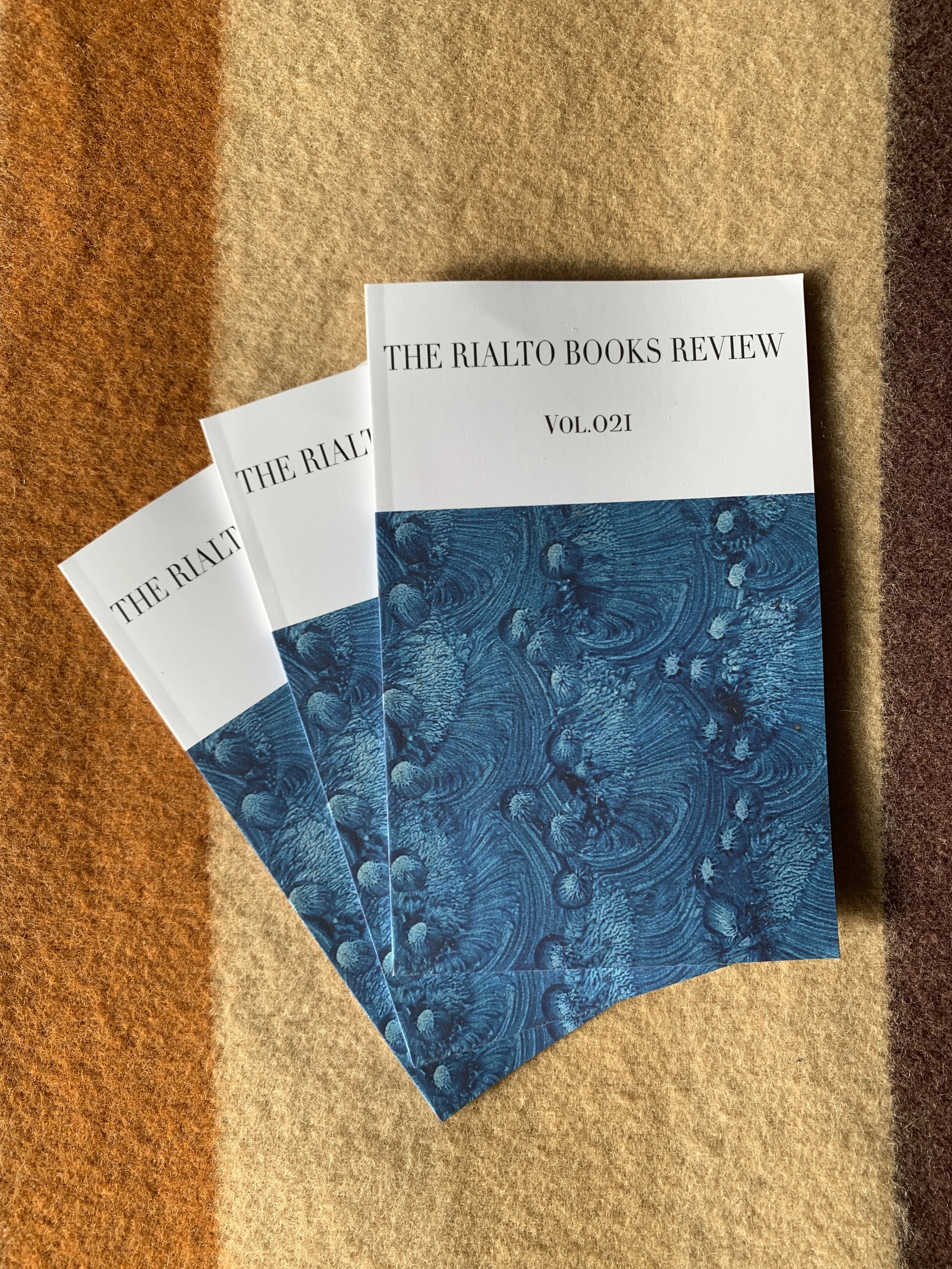The Rialto Books Review -- Vol. 018 AVAILABLE NOW
Buy The Rialto Books Review Vol. 018 here.
Buy a 12-month subscription to The Rialto Books Review here.
You can check out via Stripe by following the links below. Each sale generated through these links will automatically kickback a portion of the sale to the listed author.
The Rialto Books Review Vol. 018 includes “Clairvoyance” by Thomas Benz and “The Coward” by Sarah Alderson, which won first and second place in Song of the Broad-Axe Publications’ 2023 Short Story Contest, respectively. The first part of Alexandra Ranieri’s new short story “The Lighthouse” and Anthony Ranieri’s series of essays on translation, “Lost in Translation”, are also included.
Readers are invited to visit our Substack, The Ha’Penny Papers, where our third place-winning story, “The Death of Pinky” by Laura Jeanne K., is also available here.
Clairvoyance
by Thomas Benz
Judd went to retrieve Sloan’s cleaning, knit ensembles and wool skirts and anything else which, for reasons that eluded him, couldn’t withstand the turbulence of a dryer. Through the storefront picture window, he spotted Mr. Hassan, a Palestinian he thought, or maybe a Turk, who must have been one of those fortunate enough to get out while the getting was good. The place had only been open six months so they greeted one another in the muted way of a transaction, with a measure of warmth only a degree above indifference.
Judd handed him the ticket Sloan had dredged out of her purse, and Hassan pressed the button which prodded the whirligig of hanging garments into concentric motion. The sound of it reminded Judd of the droning whine of a forklift, which must have driven Hassan half mad in the beginning, yet now likely went as unnoticed as the passing cars just feet from his door, or the vague scent of chemicals that pervaded the shop. Hassan searched through several of the racks but the order was apparently misplaced, so the stout man with the fuzzy mustache strode to the back, quickly becoming effaced by a sea of pressed suits.
The Coward
by Sarah Alderson
Fear is an instinct. We all have fears; the fear of the dark and the monsters that dwell there, the fear of loss, and most importantly the fear of death. Plague and death were imminent in the town of Isaac. Most of Europe and much of England was engulfed by plague and people were dying. The town of Isaac had not yet been hit, but the stench of fear wafted on the cold September wind and permeated the walls of houses and buildings. The fear of loss and death had been a growing problem among the people of the small manor town as messengers came and went to the magistrate, speaking of death and loss.
All this fear makes people irrational and stupid, Brun thought to himself as he surveyed the lane in front of him. The doors were closed against the oncoming chill, and most of the people had gone inside for the evening. He pulled the warrant from his sleeve and looked at it again. Poor Elizabeth Smith. He knew her well; she had delivered his wife’s children and many of the other children in town. She had been the midwife and a sort of surgeon in the town for many years, much to the disapproval of the priest. Most had loved and respected her and her knowledge, but now the church man had found his way to rid himself of this woman once and for all. Brun thought back to the meeting with the priest and magistrate.
The Lighthouse
Part I
by Alexandra Ranieri
I think I have one-upped my friends—for although they might spend their sabbaticals living in some picturesque, renovated barn, or schoolhouse, or even a former church, sleeping above the crypt—which of them has a lighthouse to call his home? Yet that is precisely what I possess—for the next six months, at least—the current owner has filled it with every modern convenience in the most tasteful style, keeping enough of the original to suffuse the mind with its history. It stands, a whitewashed beacon yet to the little village it once supplied; but a beam no longer to the lake, who has cast off the little tugboats and dinghies which once had the gall to mar her purity, and now tolerates only a few pleasure sailors in the boating season.
That season is now past; and I may look on her vast blue eye for days together, with none but the gulls to share her. I could not build from my desire and imagination, any place so wholly satisfactory to my need for intellectual and spiritual rest—for there are two acres of woods between my abode and the road into the village, and though at first I was wary of sight-seers, I appear to have established myself in the one lighthouse on the Great Lakes, which is subject to no tourist mania. I therefore conceive for myself days loafing about the shore, and nights holed up with a book by the well-stocked wood fireplace, with a trip or two to the village per week, to restock on provisions and such light social discourse, as is all I find myself equal to at present.
Lost in Translation
Part I
by Anthony Ranieri
Introduction
The purpose of this work is not to critique translations. Far from it. The purpose of this work is to explore the gulf between the magic of artistic creation and the brilliance of literary engineering through recreation.
The contribution and dedication of the translators is beyond dispute. The translator’s task is to forge path through a tract-less jungle so that the uninitiated may pass through and be drawn into the world of the author. The creator’s job is to allow the jungle to come into existence through the sheer power of his will and forbearance.
The translator carves the path, but the path only allows glimpses of the magnificence of the whole, whose wonders are often obscured by shadows and darkness the translator’s language cannot illuminate. There are places the translator himself* is barred from experiencing.
There is also the great wall of inspiration. A wall beyond the translator’s responsibility and accountability that he can only hope to scale by way of awkward and often dangerously unstable scaffolding. And then there are biases the translator inherits from his own time that he is not even aware exist, so steeped is he in the swamp of his own zeitgeist.





